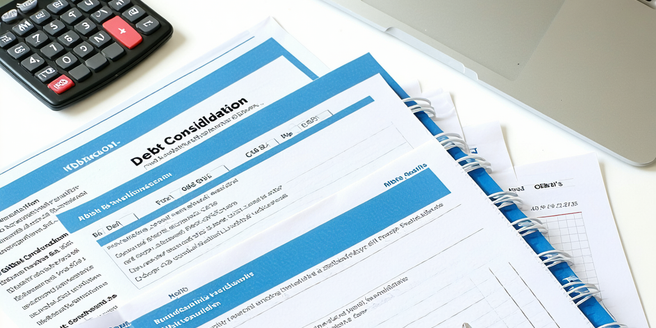
Exploring Debt Consolidation Options
Debt consolidation is a viable option for individuals seeking to manage their debts without filing for bankruptcy. This strategy involves combining multiple debts into a single payment, often at a lower interest rate, making it more manageable for the debtor. Through a debt consolidation loan, one can simplify the repayment process and potentially reduce monthly expenses. It is important to thoroughly research financial institutions offering such loans and compare interest rates, fees, and terms. Consulting with a financial advisor can provide additional insights and help avoid potential pitfalls. While debt consolidation can offer relief, it’s not a silver bullet; ensuring that future financial habits support debt reduction is crucial. Always scrutinize any agreement carefully and consider your capacity to meet the terms to avoid deeper financial troubles.
Utilizing Debt Management Plans for Relief
For those seeking structured support in managing financial distress, a Debt Management Plan (DMP) can be an effective approach. By working with a credit counseling agency, debtors can negotiate more affordable repayment terms with creditors, aiming to settle the debt within a specified period. The agency typically consolidates the payments, distributing them to creditors on behalf of the debtor. This can alleviate stress, as it eliminates the need for multiple payments. DMPs can also result in waived fees or reduced interest rates through negotiation. It’s important to choose a reputable agency, and verify that it is accredited and transparent about its fees. People considering a DMP should carefully evaluate their budget to ensure they can meet the monthly obligations and should steer clear of scams that promise short-term fixes.
Negotiating with Creditors for Settlement
Negotiating directly with creditors can provide significant debt relief benefits by potentially reducing the amount owed and settling on terms that are more favorable. Successful negotiation often requires demonstrating financial hardship to the creditor and patiently working through potential solutions. It can be beneficial to prioritize debts, focusing first on those with the highest interest rates or those posing the greatest financial threat. Developing a realistic repayment proposal and being prepared to negotiate can significantly boost the chances of a favorable outcome. It’s essential to maintain thorough documentation of all communications for future reference. Employing the assistance of a mediator or financial advisor can also streamline the process and provide professional advice. Settling can impact credit scores, so weigh the benefits against potential disadvantages before proceeding.
Embracing Lifestyle Changes to Reduce Debt
Reducing debt can sometimes require more than financial strategies; lifestyle changes can play a crucial role in achieving lasting financial stability. Adopting a frugal mindset and reassessing spending habits are fundamental steps towards debt relief. This might involve creating and sticking to a strict budget, cutting unnecessary expenses, and finding cost-effective alternatives for everyday needs. In addition, embracing minimalism by decluttering and selling unused items can provide extra funds for debt repayment. Commit to lifestyle adjustments like cooking at home, restricting luxury purchases, or utilizing public transport to save money. Emphasizing savings, even small amounts, empowers financial flexibility and promotes resilience against future financial challenges. These adjustments need consistent effort and commitment but can lead to a sustainable path towards reduced debt.
Leveraging Home Equity for Debt Solutions
Utilizing home equity is another option for addressing debt, which involves borrowing against the value of one’s home through a home equity loan or line of credit. Such financial moves can offer a lower interest rate compared to traditional loans or credit cards, and the funds obtained can be used to pay off other high-interest debts. However, it’s critical to consider the risks: failure to repay could result in losing one’s home. Evaluating one’s ability to adhere to the repayment schedule is essential before proceeding. This option may be particularly suited for those with significant equity in their homes and a stable income to support regular payments. Consulting with financial experts for tailored advice and examining long-term financial goals can further guide this decision-making process.
